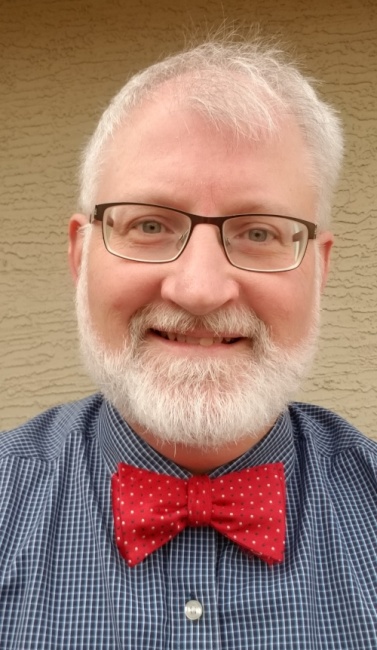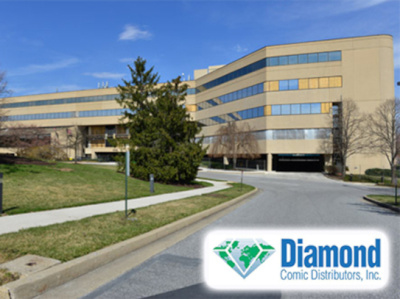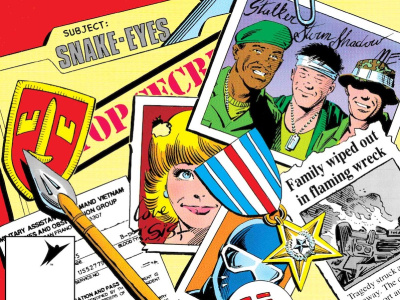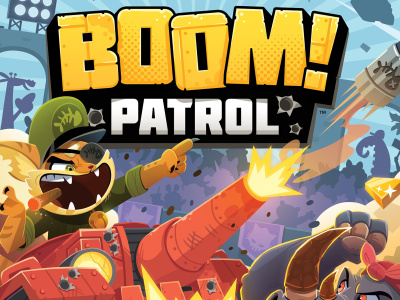We caught up with new GAMA Executive Director John Stacy (see "GAMA Appoints New Executive Director") at Toy Fair in New York recently and took the opportunity to ask about his vision for the organization, his interaction with the board, staffing, and the two big shows coming up from GAMA.
ICv2: You haven't been there long, but maybe you could talk a little bit about your vision for the organization and what you feel you bring to that vision in terms of helping the industry?
John Stacy: My background is association management. I've been doing this on and off about 30 years now ‑‑ government relations, communications, marketing. I hope to bring a bit more structure to how we're approaching it as a trade association rather than being an event planning company.
We've been known for Origins and for the Trade Show, two very important services. As a trade association, there's much more we could be doing regarding member services, including communications, networking, offering services like affordable healthcare, some training around getting a certification for our retail members.
What kind of certification?
A lot of the members we have are introduction members who come in trying to figure out how to get in this industry. You want to create a pathway to success for them. It's geared towards the foundational education.
If you've been a store for 20 years, obviously you don't need that because you've been around long enough to know how to run your business. If you're new at this, you have a lot of questions. We're working with our retailer division to create some trainings that are focused for those foundational skills for a new business in this industry.
We're working on putting those online with some webinars, creating some tool kits, some resources, like, "Here's some contacts if you need manufacturing partners, or if you're looking how to source products for your store. Here's who to go to, to a distributor or directly to the manufacturer."
We're trying to make it easier to get that information. You're not out there basically blind, trying to figure this out.
How is what you're talking about different than what's been done in the past?
In the past, you basically had to go to the Trade Show to learn these things. We haven't recorded any of our seminars in the past. With technology, it's easier to do that. We're creating an online toolkit for them. They can go to our member website. They can download a form. They could download information on contact info sheets.
It's all about facilitating that communication. We're trying to make that process so it's throughout the entire year, not just in March wherever the trade show is that year.
Let me also add, another important thing we do is advocacy. I was a lobbyist for many years in the healthcare industry. I've been to DC talking about tariffs and trade. We're taking a group down to Atlanta here in May, around customs and importing products.
That's that important role that the trade association can play, is having a voice for our industry with elected officials. I hope to do a lot more of that as time goes on.
You said you've done that in the healthcare industry. I don't know what part of the healthcare industry you were working in, but do you feel that had positive results?
Absolutely. It was homecare and hospice providers. The average aide was making eight dollars an hour. We actually went and lobbied for higher Medicaid rates for our members and for their employees. Turnover was a huge problem in that industry because people would go work at McDonald's or Walmart for benefits.
In our industry, healthcare's a huge issue. I've had a lot of people calling and saying, "We'd like to have the Association take the lead on this issue." We've actually done that. We're having a broker come to Reno to talk about that issue. We're collecting census data from our members. We're trying to get a group pulled together to share that risk so we get some lower rates for our members. That's an important thing that we're working on.
How much direction or interaction do you have with the board on a week‑to‑week or month‑to‑month basis?
We're meeting weekly at the moment. We're doing a transition plan, obviously. I've been in this position seven weeks now. My hope is that when the board gets more comfortable with what we're doing internally with the staff, they will not need to meet as frequently. They have their own businesses to run.
Our trade association, our goal is to staff up. When I came in, we had four vacancies. Even before I came in, people were leaving because of the uncertainty of what was going on. I've hired three individuals in the last three weeks. We have a new position out now for a new event manager to help with overseeing Origins and the trade show going forward.
That's a new position, right?
Correct, that's a new one. That was the old deputy director position we had before, which was vacant. We're bringing in another level of management to help with that workload. I hired a new project manager to help with registration and to do some data collection for our industry. We have a new director of communication coming on board here on March 4th.
Was one of those replacing Dominique?
Correct, she is leaving. This Friday, February 22nd, is her last day with us.
What was her position?
She was the marketing manager. We're actually making that a communications manager. It'll be a little bit broader than just marketing. It's about doing more communication with our members, doing some more strategic communication around social media. We're looking at getting our news direction up where it should be.
We're actually putting more information out to our membership about stats in the industry, upcoming trainings, opportunities for them. We want a more robust communications team. This new person will do that, working with Meg, who is currently our convention coordinator. She's moving into more of a community outreach and social media coordinator position.
We're doing a little restructuring internally to fit people's skill sets a little better.
Now the million-dollar question. Do you feel like you're going to be appropriately staffed for the GAMA Trade Show?
Absolutely. That's why I made sure that we had these three hires onboard prior to that. The third one is an education manager. This person has over 10 years' experience in the industry working in trade associations, not necessarily gaming industry. She's well‑versed in creating training programs. She's my first hire that I made. Melissa Jacobs is her name. She actually worked for me in a previous association I was at. Her mandate is to create these education programs I talked about earlier and make something new for us to offer our membership.
With the turnover, the new hires, restructuring, is the net staff members going to be the same, greater, or less when you're done staffing compared to where it was a year ago?
We were budgeted at 10 staff people last year, and we'll be at 10 staff people this year. We're working on our budget for 2019 and 2020 with our board. It's going to be funding level for those 10 staff people.
Do I understand correctly there wasn't really a transition agreement with [previous Executive Director] John Ward (see "Ward Departs GAMA Office")? Did you have the benefit of being able to interact with him in learning your job?
I've interacted with him a couple times since I came onboard. I was not involved in the negotiation between the board and him on his severance agreement. That is signed and done. He has a one‑year contract with us to do some consulting.
That's good news.
Yes. That was signed a couple weeks ago, so we'll be definitely having conversations with him, as needed. He has a lot of information that's worth sharing. It's important that he made himself available for that. My understanding is he's taken another job starting sometime soon. I don't know the details of that.
Obviously, I don't want to impede on that, but we wanted to make sure that his family was taken care of on certain things. That was part of the severance agreement. Given that was all negotiated by the board and his attorneys, that's done. We're just moving forward.
Is there a board member employed as staff?
We're actually having one of our board members in a volunteer capacity, although...
Not paid staff, volunteer staff?
At the moment, yes, although we are looking at giving her some stipends to pay for some of her transportation costs and those kind of things. It is in a financial capacity. To be honest, our financial processes don't exist, so we're trying to put those in place. She has experiences before as an accountant. To hire someone with that experience level would be very expensive for us to do. She offered her services, thankfully, for a few weeks. We found after she was there for a few weeks that it was a much bigger job than we thought it was.
We are finding lots of areas that we can improve under invoicing our members, bookkeeping, some of the ways we interact with some of our vendors. She's helping us create some policies and rules around that, which the whole board are going to review and approve.
It's a help for us, in that respect. It's saving us around $15,000 to have her do that as opposed to outsourcing that and hiring someone with that experience level for six months.
The truth is, once she's done with this process, all we'll need is a bookkeeper at that point. To hire at that staff level and then let them go just didn't make any sense logistically or financially.
It's all unpaid at this point?
At the moment, although, again, we're talking about having some kind of stipend to help her with her time regarding travel and housing. She's been flying into Columbus every two weeks and that sort of thing. We're still working those details out.
To be clear, especially at the board level, we're having a conflict of interest statement by this individual. They recused themselves from anything that has to do with this role with board votes. We're trying to vet this so it makes sense for the Association financially as well as for the member and for no conflict of interest. We're trying to meet that.
Hard for you to manage your boss, right?
That's true, and that's why it's important to have this individual recuse them self in those certain votes around the aspects of the financial components, the processes. The person is a member of the board, yes, so I do work for my boss.
Or your boss works for you.
No, actually my bosses are all the members, and the boards are their representatives. Your question about management with me and the board, the board says, "This is how we want to see the direction of the Association. Go and do it." I'm trying to do that.
The board doesn't always represent its members. In the transition to you, they chose to make a decision that didn't reflect the will of the members.
Again, the board has information the membership doesn't always have because they just have casual interaction with the Association. The board's seeing, day‑to‑day, what's going on operationally, personality‑wise, financially, all these things. They make decisions. I wasn't involved in these decisions. I'm just the person now moving us forward.
I think part of this is we need to be more transparent with our members about what we're doing and why we're going in certain directions. We've been talking internally with our staff on how we're communicating the things that we're doing, so members understand that we work for all of our members and they all feel like it's their Association and we work for them.
I've been trying to instill that in what we're doing operationally with our programs, with our services. I think we'll be in a good place once we get through this transition period.
What do you consider the transition period?
I have a two‑year contract with the board. The first six months are going to be the real test, obviously. We have the GAMA trade show and we have Origins. I feel really good where we are on Trade Show. We're working hard on getting Origins to where it needs to be. We'll need a few months to make some tweaks and changes after that.
This first year is really going to be a huge year for the Association. I encourage members to get involved. We need more volunteers. We need more voices at the table. We're trying to create some new committees for our members to volunteer and help out, provide input.
Once we finish Trade Show, we're going to be doing some focus groups on members around how we organize trade show, how it's structured, the programming, what services they're getting. Is this the best way of doing it? I've already gotten a lot of feedback, as you can imagine.
This is not a shy industry. They're happy to share things with us and with me, specifically. I've been to a lot of meetings. My notebook's full of comments from this last couple days here talking to people. A lot of great ideas. We have to find the bandwidth to make that happen and put it in a priority order that makes sense for our membership and for our resources. I'm excited about it.
One specific question about Origins. There was the situation with [former Director Emeritus Mike] Stackpole deciding he didn't want to be involved any more (see "Mike Stackpole: GAMA Board is Broken"). There was a message from you later that said you were moving ahead with the fiction creator's program that he ran. How's that going?
It is a lot of work, Mike is correct. It is tough to do things the way we did them it in the past. I've been talking to some of our volunteers about organizing that program. There will be an authors program. We're trying to get the anthology put together now.
We're going to try to offer a digital version of that as well. We've partnered with a local bookstore in Columbus to do a book shop at the show. We're going to be doing game buy‑backs.
We're going to have a dedicated authors’ area with programming, and that's coming along. It is a lot of work, and Mike was right about that. It was probably a little more daunting than I thought going in. I give Mike props for doing that. It's an important component of our program, and we have to continue it.
We counted 50 hours of content last year was involved in that program. That's a lot.
It is huge, so that's why you need more volunteers to help do that. The staff can only do so much. I would love to have Mike's help if he wants to be involved in that. I get he has his own things that he has to do, and that's fine. I appreciate that.
We're moving forward with it. It may not be as robust as it was in the past, but we're trying. That's all you can really do, is try to make things happen, so we're going to.
We received a follow-up statement from Stacy in which he updated his answer to our questions about a board member on staff at the organization.
You asked if any board member was being paid to perform services for GAMA. As I noted one of the board members had been volunteering for several weeks in the office to help document financial policies and procedures due to GAMA being without a consistent finance person for several months.
There was a large backlog of items to be processes and documented. As the scope of the project grew we were discussing if it was fair to the board member’s time as it was turning into a full time job for a couple of months. When we spoke last week were still trying to determine how to best approach this matter.
In the end we have opted to an accounting temp as a stopgap while the board member continues to volunteer to document financial and operational processes. Once this project is completed and we have our financial operations manual we will hire a fulltime finance person.
As the demand on the board member time will not be as great as we had initially anticipated, they will not be receiving compensation. I just want to clarify that as it was still up in the air last week.
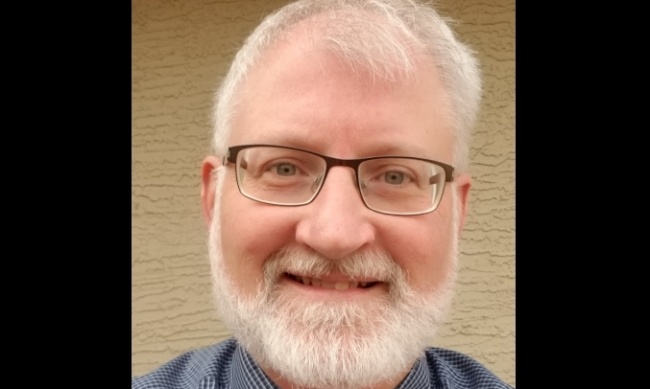
On His Vision for the Organization, Staffing, Trade Show, Origins, More
Posted by Milton Griepp on March 5, 2019 @ 1:03 pm CT
MORE GAMES
And Why Some Aren't Paid
August 12, 2025
Not all post-petition invoices were getting paid as they come due.
New 'Die' Story Out in November, Alongside 'Die Quickstart RPG Guide'
August 11, 2025
The Die: Loaded #1 will be released in November 2025, the same month as The Die RPG Quickstart Game Guide.
MORE NEWS
'Hama Files Editions' Will Include a Letter from the Creator
August 11, 2025
Each issue of the Hama Files Editions will include a letter from Hama with background information about the comic.
New Tank Battle Board Game by Smirk & Dagger
August 11, 2025
Smirk & Dagger will release Boom Patrol, a new tank battle board game, into retail.



